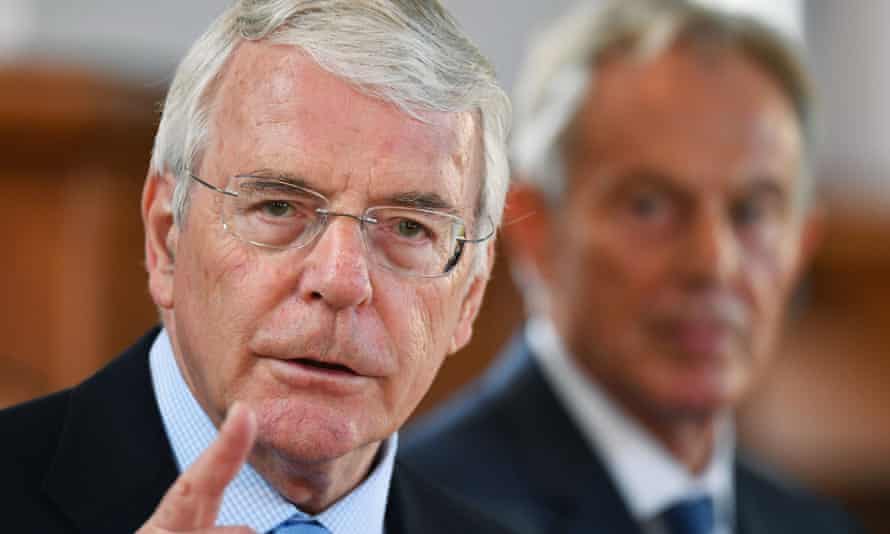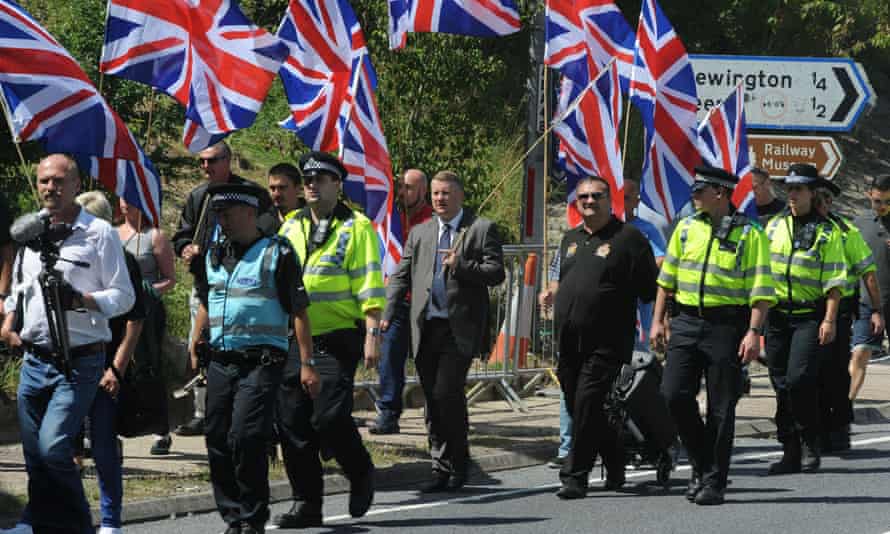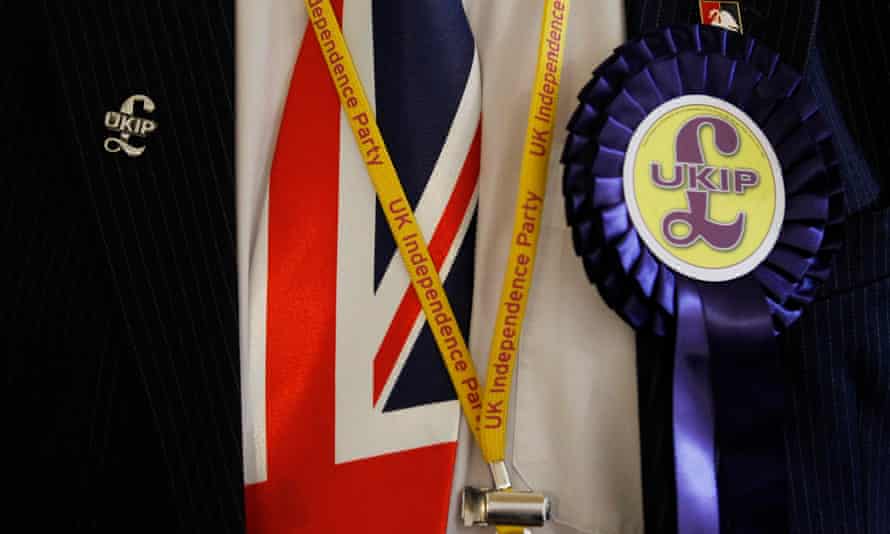England Does the General Public Get to Vote Again on Brexit
United kingdom's cocky-ejection from Europe is the culmination non just of four months of heady campaigning but iv decades of latent Euroscepticism, which, through good times and bad, never really went away.
Campaigners have agitated for European union withdrawal ever since the UK joined the mutual market in 1973. Labour's official policy for the next decade was to quit, and a sizeable proportion of Conservatives have never been comfortable Europeans.
The issue hounded John Major'southward premiership, lay dormant through the Tony Blair years earlier rearing its head once again as the economic system turned sour at the terminate of the last decade.
David Cameron was keen to movement his party abroad from "banging on about Europe" afterward he became leader. But once in Downing Street, he constitute information technology impossible to resist pressure level from his backbenchers to call a poll as the thought of leaving the EU gained wider traction in the state with the rise of Ukip, populist rage against remote elites and discontent almost immigration.
Brexit, a term coined in 2012 before becoming mainstream political currency concluding year, moved from being a niche obsession to a victorious, mainstream political motion.

Backbench bravado
Equally prime minister, Cameron tried to throw his restless Eurosceptic backbenchers enough red meat to proceed them happy – like withdrawing from the eye-correct federalist EPP group in the European parliament.
Nevertheless, this would never be enough for the correct of the Conservative party – from Iain Duncan Smith to John Redwood – who would finish at about nothing to free the UK from what they meet equally rule by Brussels, even at the expense of tearing autonomously their party.
Cameron's troubles began as it became clear that the 2010 intake of Tories was more Eurosceptic than the last, every bit they set nigh applying pressure for a plebiscite from the beginning.
As early as October 2011, David Cameron realised he was facing years of trench warfare with Eurosceptic backbenchers after 81 Conservative MPs supported a referendum on United kingdom of great britain and northern ireland'southward membership in the largest postwar rebellion on Europe. John Baron, the Tory MP for Basildon and Billericay in Essex, was one of the ringleaders with a letter from 100 colleagues demanding a referendum on the EU in July 2012.
Cameron idea he had scored a Margaret Thatcher-style victory when he vetoed a rise in the European union budget afterward that year, but the episode appeared to inflame anti-Brussels feeling. In December of that year, Boris Johnson publicly chosen on Cameron to attempt to renegotiate Britain's human relationship with the EU before calling a referendum.
The prime number minister finally committed to an Eu vote in Jan 2013 with what has become known as his Bloomberg speech, promising to renegotiate and so call a referendum by the terminate of 2017. Those familiar with his thinking at the time say Cameron had what was, in retrospect, an overoptimistic conventionalities that he could lance the boil of Tory Euroscepticism past making such a promise.
It was also unlikely he would ever accept to telephone call such a poll considering the Conservatives did not believe they would win an overall majority and could rely on the Lib Dems to veto the plan, like they did before 2015. Even so, Cameron'southward victory last twelvemonth, partially on the dorsum of the hope of a referendum, meant there was no turning dorsum.
The migration cistron

Polling suggests discontent with the scale of migration to the UK has been the biggest factor pushing Britons to vote out, with the competition turning into a referendum on whether people are happy to accept free movement in return for gratis trade.
Public unease has been fuelled by a failure to forbid immigration from piling pressure on jobs markets and public services, and a refusal by politicians to acknowledge the sheer numbers of Europeans making new homes in the United kingdom of great britain and northern ireland after the European union's expansion east in 2004 and 2007.
Cameron promised before the 2010 election to bring migration downward to the tens, not hundreds, of thousands. All the same, his failure to alive upwardly to his promise, repeated in 2015, has undermined trust in his leadership and contributed to a sense that Great britain politicians are powerless to lower migration from the European union.
The leave camp tried to make the arguments for Brexit more well-nigh the economic system and sovereignty than immigration, but quickly institute that "taking back control" over immigration was the about resonant bulletin. They as well linked immigration to shortages of principal schoolhouse places, difficulty in getting a GP date, and depressed wages.
Elite and aloof
The other strength that welled up during the campaign was a wholehearted distaste for the affair that Brussels had become in the 40 years since Great britain last voted in a plebiscite on its place in Europe.
The Britain has never voted on being part of the European union, which was formed at the fourth dimension of the Maastricht treaty in 1993 and expanded its remit from an economic community to include strange affairs, justice and policing.
The leave camp argued that Brussels has been on a mission to aggrandize its powers and sought further political integration, which is far removed from what the UK originally voted for. Voters appear to accept decided that this was their one chance to leave a union they never peculiarly embraced and did not consent to in the first identify.
It should not be forgotten that the referendum came at a time when populist revolts against elites were gaining momentum, from Eurosceptic parties in French republic, Germany, Austria and Scandinavia to Trump's brand of Republicanism in the U.s.. The get out entrada has throughout painted the EU and Brussels officials every bit a hotbed of unaccountable political elites who were not democratically voted past the British people.
Despite MEPs being elected and leaders on the EU council each having their own mandates, it has get a tenet of Euroscepticism that the matrimony is too remote from the people it is governing. Brexit campaigners ofttimes cited the "five presidents" of Europe, who they claimed no ane had always heard of, and pointed out that the unelected European commission proposes laws that finish up passed by the parliament.
It hardly helped that the remain campaign was steered by almost the entire political establishment, with David Cameron, George Osborne and every living UK erstwhile prime minister from Tony Blair to John Major lining up to warn that leaving would exist a terrible thing.
The Ukip gene

Cameron might never accept called the plebiscite had it not been for the rise and rise of Nigel Farage and Ukip. By January 2013, when the prime government minister chosen the European union vote, Ukip had started to proceeds traction in local elections and was polling in double digits for the first time. There was a feeling that several Tory backbenchers could defect if Cameron failed to heed their calls for a plebiscite.
Even subsequently promising the referendum, Farage managed to gain millions of votes in the 2015 election, many of them in Labour areas every bit well as Conservatives. His frequent media appearances also helped cement a link betwixt immigration and the Eu in the public mind, preparing the footing for leave's successful referendum campaign long before it officially kicked off.
Also picayune, too belatedly
David Cameron overplayed his hand on Eu reform when he raised hopes that he might be able to curb costless movement in an FT article in November 2013. He aimed high only rapidly had to water downwards what he was seeking from other Eu leaders who were not prepared to open upward the fundamental principle.
Realising his error, the prime government minister then tried to brand the issue about limiting benefits for migrants, rather than restricting numbers. His final negotiation, appear in February, came back with a ban on migrants getting full benefits for 4 years after arriving with no detail about how the tapering organization would piece of work.
Cameron tried to make the best of his renegotiation, hailing it as a major success that he got the 27 other fellow member states to hold. However, the procedure ended up cementing the impression that Brussels was inflexible and unwilling to make big concessions to keep Britain in the wedlock.
Boris Johnson and Michael Gove for get out
When the ii political large beasts and friends of Cameron came out for
Brexit, information technology gave a huge boost to the leave campaign. Brexit had previously been caricatured equally an obsession of very rightwing Conservatives and Ukippers but Johnson and Gove legitimised the push for leaving the EU.
Both highly clear and savvy media performers, they made it more of a fight betwixt equals against Cameron and Osborne. Johnson's personal popularity seemingly across many dissimilar sections of order may also have made a difference as he crisscrossed the country in a battlebus selling a meliorate Britain outside of the Eu.
Matters were not helped by equivocating on the part of Labour, whose leadership never looked truly comfy campaigning with Cameron, and some of whose traditional support has drifted off towards Ukip in the belief that it volition address concerns well-nigh clearing more robustly than metropolitan Labour MPs.
Source: https://www.theguardian.com/politics/2016/jun/24/how-did-uk-end-up-voting-leave-european-union
0 Response to "England Does the General Public Get to Vote Again on Brexit"
Post a Comment